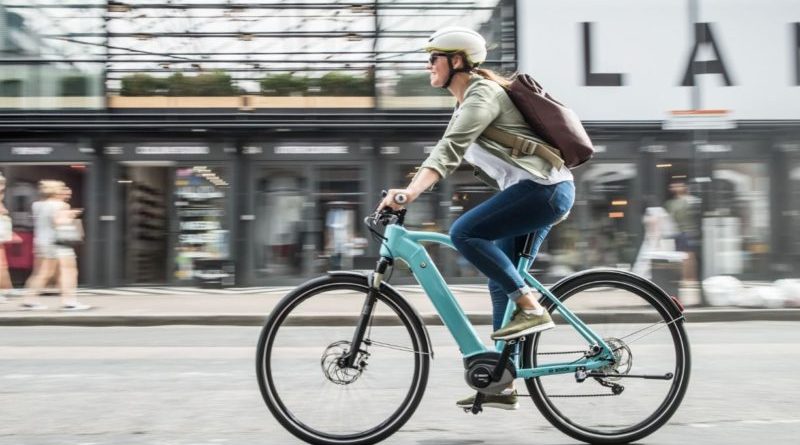E-bike incentives over twice as effective as EV grants, says BA
According to the Bicycle Association (BA), the UK is falling behind regarding green transport because it is failing to promote e-bikes alongside electric cars (EVs).
The cycle industry trade body is arguing that incentives to boost e-bikes are better value, more equitable and healthier than subsidising EVs, backed up by research from consultancy Transport for Quality of Life.
The research shows that the cost of saving a kilogram of CO2 via schemes to boost e-bike use is less than half the cost of existing grants for EVs, and at a cost per purchase of less than one tenth of the grant for EVs.
The BA believes that EVs will play a key role in ‘decarbonising’ all forms or transport, but argues that e-bikes should be a top priority for urgent government support.
The findings were launched today at a meeting of the All-Party Parliamentary Cycling Group (APPCG) in the Houses of Parliament, attended by MPs, officials and decision-makers.
According to the report, e-bike use is steadily growing in the UK with around 60,000 sold last year, although they only made up 3% of the bike market. In mainland Europe, however, a variety of incentives and initiatives used by regional and national governments to promote e-bikes saw almost one million e-bikes sold in Germany alone last year.
The evidence showed that around half of all trips by e-bike replace a trip that would have been made by car. Generally used for longer trips than conventional bikes, e-bikes’ potential to reduce carbon emissions, air pollution and congestion is correspondingly greater.
In the eyes of the BA, e-bikes are now ready for mass adoption due to harbouring none of the barriers to wider EV ownership, such as high purchase prices, range anxiety or a need for an expensive charging infrastructure, applying to e-bikes.
Steve Garidis, Executive Director of the BA, said: “The time is right for national government and city regions to kick-start wider e-bike uptake with purchase incentive schemes. The results in terms of CO2 and congestion reduction will be fast and at a remarkably low cost – a game changer in clean urban transport.”
Chris Boardman, Greater Manchester Walking and Cycling Commissioner, added: “I can see the huge potential of e-bikes, they are the perfect tool to entice many people who don’t want to be a cyclist, out of the car.
“I wholeheartedly support any measures that make that choice easier and I am very keen that Greater Manchester becomes the first Demo Region to pilot measures to give people this viable alternative to driving. I will work with both the industry and government to explore how we make that happen as quickly as possible.”
Alongside advocating purchase incentives for personal e-bikes, the BA also believes there is potential to build on the existing DfT grants scheme for e-cargo bikes, which could replace nearly one in three delivery trips by van.
In a second report commissioned by the BA from Transport for Quality of Life, evidence shows that up to 30% of commercial van journeys in urban areas could be substituted by e-cargo bike deliveries, with significant scope to reduce congestion and air pollution.
Among measures called for in the report are ‘Demonstration Cities’, which could intensively trial e-cargo bike logistics, encourage public sector procurement of e-cargo bike services, provide community e-cargo bikes for public use, and help develop best practice for future national roll-out.
The BA is calling on policy-makers at national and city-region level to realise the potential of e-bikes and e-cargo bikes as existing, readily-available and game-changing technology.



